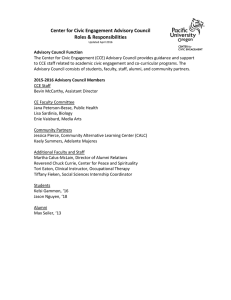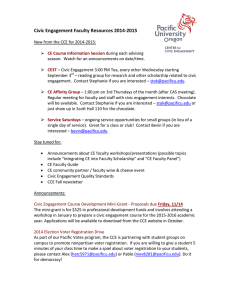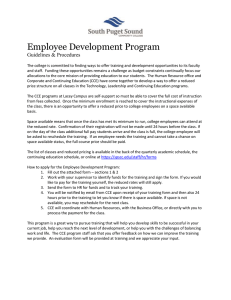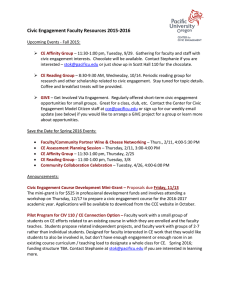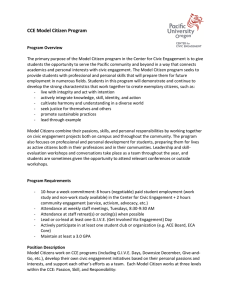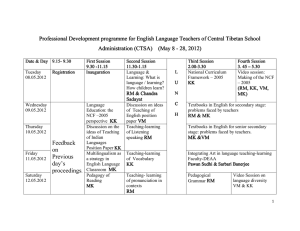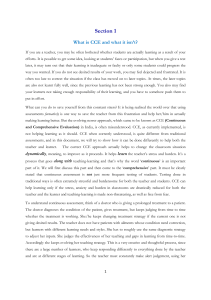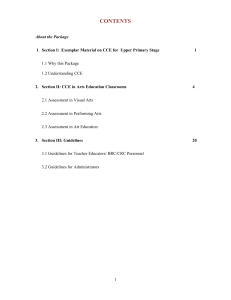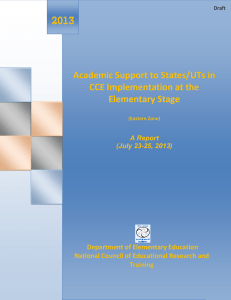Center for Civic Engagement Advisory Council Roles & Responsibilities
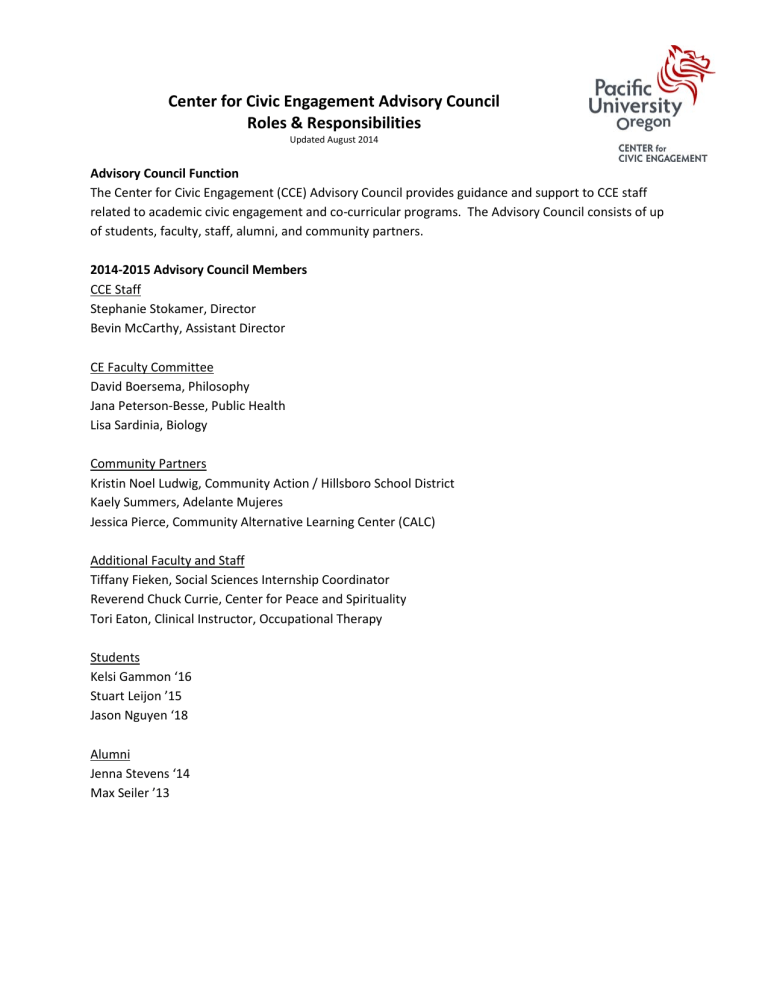
Center for Civic Engagement Advisory Council
Roles & Responsibilities
Updated August 2014
Advisory Council Function
The Center for Civic Engagement (CCE) Advisory Council provides guidance and support to CCE staff related to academic civic engagement and co-curricular programs. The Advisory Council consists of up of students, faculty, staff, alumni, and community partners.
2014-2015 Advisory Council Members
CCE Staff
Stephanie Stokamer, Director
Bevin McCarthy, Assistant Director
CE Faculty Committee
David Boersema, Philosophy
Jana Peterson-Besse, Public Health
Lisa Sardinia, Biology
Community Partners
Kristin Noel Ludwig, Community Action / Hillsboro School District
Kaely Summers, Adelante Mujeres
Jessica Pierce, Community Alternative Learning Center (CALC)
Additional Faculty and Staff
Tiffany Fieken, Social Sciences Internship Coordinator
Reverend Chuck Currie, Center for Peace and Spirituality
Tori Eaton, Clinical Instructor, Occupational Therapy
Students
Kelsi Gammon ‘16
Stuart Leijon ’15
Jason Nguyen ‘18
Alumni
Jenna Stevens ‘14
Max Seiler ’13
Council Member Composition
Selection
Council members will be chosen by the director of the Center for Civic Engagement (CCE) based on potential member interest and willingness to join, as well as what the potential member could contribute to the council. If necessary, announcements will be made to solicit nominations. Nominees will be asked to have a conversation with the director prior to agreeing to serve to ensure the expectations of the commitment are clear.
Representation
The Advisory Council will consist of 12-15 members. The director will strive for a diverse Council with representation from the following areas:
CCE Staff (the director)
Faculty (3-4 with at least one from each of the schools)
Community partners (3-4)
Students (2)
Staff (1-2)
Alumni (1)
Graduate programs (1-2)
Other facets of diversity will also be considered during selection in line with the goal of bringing together varied perspectives and interests. Such additional aspects of diversity include:
Experience with civic engagement
Type of organization / involvement (e.g. schools, public entities)
Personal characteristics (e.g. race, age, gender, etc.)
Terms
Upon selection, council members will be asked to commit to a specified term of service. Students will be asked to commit to one year, with the option of renewal. Partners, faculty, and staff will be asked to commit to 2 or 3 year terms. Staggered service will facilitate a combination of experience
/organizational history and new ideas. Exceptions for term length may be granted under certain circumstances, such as an AmeriCorps position that lasts only one year. Members may serve two terms and then will typically be asked to step aside for at least one year.
Council Roles & Responsibilities
Functions of the Advisory Council
• Organizational planning –Council members will set goals and objectives for the CCE for short and longer terms. Members will help set strategy for advancing the presence of the Center on campus and in the community.
• Liaison to constituent groups and the public – Council members will keep an ear to the ground on problems, successes, concerns, etc. that they hear from students, community organizations, staff, faculty, or members of the public. Members will help spread the word about what the CCE does, bring new ideas to the table, and connect individuals to CCE staff as necessary.
• Mission alignment – Help keep director and staff on track with honest feedback, ideas, and concerns, and moral support. Council members may also be involved with assessment processes to ensure that civic engagement is meeting the needs of both Pacific students and the community.
• Financial guidance –Council members will advise the director on budgetary alignment with priorities. While the council will not have direct financial oversight, members will be asked to contribute to budget development and may be asked to participate in fundraising efforts for the
Center.
• Risk management – Council members will help identify potential liabilities and risks in CCE programming. Members will help CCE staff balance necessary risk with prevention of problems.
• Program support – Council members will occasionally be invited to support CCE programming in other ways, such as providing guidance to students working on a civic engagement activity related to their experience or by participating in CCE-sponsored events.
• Curricular review (faculty only) —Faculty members on the advisory Council have an additional responsibility to review civic engagement course proposals, discuss other curricular matters related to civic engagement and to meet as a subcommittee when needed.
Time Commitment
The council will meet 3-4 times per year in person and conduct other communication via email as necessary. Members typically spend about 2 hours per month on council responsibilities. Occasional ad-hoc task teams may be necessary for specific projects. Faculty members will likely need to contribute an additional 2 hours a month for curriculum-related tasks.
